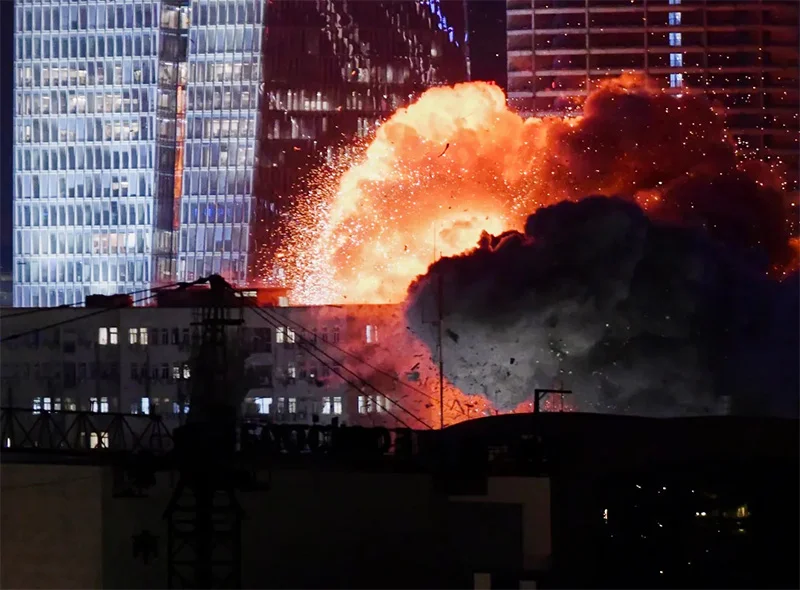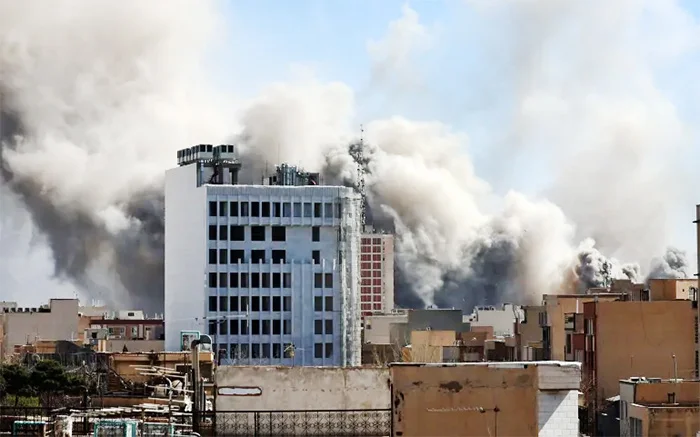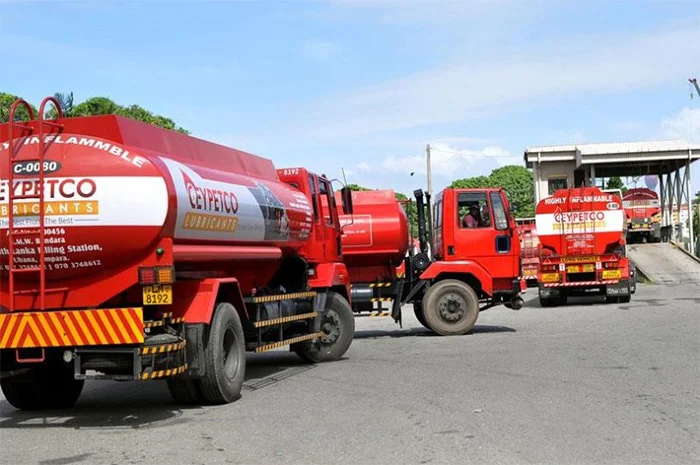News
ATA is a continuation of PTA in more repressive form – Prof. Uyangoda

By Rathindra Kuruwita
The proposed Anti-Terrorism Act (ATA) is a direct response to the citizens’ protest movement of 2022 and the continuation of these protests this year, Professor Jayadeva Uyangoda, a political scientist, said during an online seminar on the ATA, organised by the Federation of University Teachers’ Associations (FUTA) recently.
“The ATA is a continuation of the Prevention of Terrorism Act (PTA) in a much repressive form. The terrorism it seeks to suppress is citizen’s political activism. The proposed law frames terrorism as a broad, arbitrary and an alarmingly undemocratic manner,” he said.Prof. Uyangoda said that people had used the term, ‘draconian’, to describe the PTA, however the new ATA went beyond the PTA in its repressive capacity.
“The present government and the President want to address two dimensions. One is that the authority and legitimacy of the current ruling class is in a severe crisis. Most of the people reject the political order run by the current politicians as a whole. This is a severe form of political crisis. The second aspect is that the executive presidential system introduced in 1978 has also faced a severe crisis. The crisis was so deep that unarmed protestors could dislodge a very powerful president. That crisis of executive political order continues,” he said.
What Wickremesinghe is trying to do is to resolve the twin crisis of the existing political order by using the state and political power he has access to. These twin crises occurred because politically conscious citizens not only reject, for the first time, the legitimacy of the political class but also, they are demanding a radical transformation of political culture and class, he said.
“This kind of transformative social demands are not acceptable for the ruling elites. So, what could they do? One thing they could do is introduce new legislation that would transform Sri Lanka into a police state under the supervision of the current political leadership. The political implications of the ATA are far reaching than the PTA or the emergency regulations that we have been having since the 1970s. ATA is trying to achieve what the PTA or the emergency regulations could not achieve, i.e. an effective police state. Sri Lanka is entering a state of heightened de-democratisation,” he said.
Sri Lanka has been in a path of rapid de-democratisation since the 1970s with sporadic attempts to re-democratise it by sections of the people and reformist politicians. However, last year Sri Lanka entered a new phase of re-democratisation with the protest movement.
“What the government has been trying to do is constantly terrorize the politically conscious and active groups of citizens,” he said.
The ATA criminalises the citizen’s political activism and in turn makes the citizen’s political activism an anti-state political activism, Uyangoda said.
“The punishment for activism is 20 years in jail. One of the lessons that the political class has learnt from the protests last year is that they should not allow Sri Lankans to become active, assertive citizens. They don’t only want passive citizens but also subservient citizens. They want to make politically active citizens to be criminals. That is the police state dimension of this,” he said.
He added the proposed ATA is also an attempt by the government to prepare for the social unrest that is likely to arise in the country due to its disastrous austerity measures.
Uyangoda suggests that the burden of economic revival is being placed solely on the poor and middle class, which has created an impending social crisis. He views the proposed ATA as a continuation of the current Prevention of Terrorism Act (PTA) in a much more oppressive form that seeks to counter citizens’ political activism. He warned that the ruling class’s undemocratic response to quash protests and demonstrations would further oppress the people and turn them into terrorists.
Uyangoda argued that the ruling class was aware that their economic programme was likely to lead to daily protests and demonstrations on the country’s roads, and they were trying to prevent such events by strengthening their capabilities and passing oppressive laws. He urged the government to reconsider their approach, warning that such laws will only exacerbate the social crisis and lead to further unrest.
“The middle class has become somewhat politically active. They are the ones opposing the new tax reforms the most. So, the proletariat and the middle classes have both become politicised. One of the ways that capitalism can respond to this is by forcefully de-politicising the people. To achieve this the government has to further strengthen the repressive laws and mechanisms it has. The new enemies of the ruling class are political citizens, the trade unions, the farmers, etc. The government wants to make any form of opposition and act of terrorism,” he said.
Prof. Shyama Banneheka, head of FUTA said that the proposed ATA goes beyond anti-terrorism laws found in most countries. However, it is quite similar to laws passed by governments that attempt to crush dissent and suppress perceived threats by aggrieved people who are affected by disastrous government policies.
Meanwhile, Ermiza Tegal, lawyer and a human rights activist, said that the ATA allows the executive to take over the power of the judiciary. The ATA has a clause empowering the President to make regulations and directions.
“Right now emergency law is the only law that the President can make and that is in an emergency situation. This ATA allows the president to make regulations and directions not only during a time of emergency,” she said.
News
Israel resumes attacks as Iran vows to avenge supreme leader’s death

* Iran begins 40-day mourning after Khamenei killed in US-Israeli attack
* President Pezeshkian condemns killing as ‘a great crime’
Iran has begun 40 days of mourning after Supreme Leader Ayatollah Ali Khamenei was killed in ongoing attacks by the United States and Israel, according to Iranian state media.
Top security officials were also killed in Saturday’s strikes, along with Khamenei’s daughter, son-in-law and grandson. The killings mark one of the most significant blows to Iran’s leadership since the 1979 Islamic revolution Al Jazeera has reported.
Iranian President Masoud Pezeshkian condemned the killing as “a great crime”, according to a statement from his office. He also declared seven days of public holidays in addition to the 40-day mourning period.
Reporting from Tehran, Al Jazeera’s Tohid Asadi said people were pouring into the streets of the capital following the news of Khamenei’s killing.
“There will be expected ceremonies,” he said, noting they would likely take place amid continuing bombardment across the country.
Protests denouncing Khamenei’s killing were also reported elsewhere, including Shiraz, Yasuj and Lorestan.
“There will be expected ceremonies,” he said, noting they would likely take place amid continuing bombardment across the country.
Footage aired by Iranian state media showed supporters mourning at the shrine of Imam Reza in Mashhad, with several people seen crying and collapsing in grief, according to Al Jazeera.
The killing also led to protests in neighbouring Iraq, which declared three days of public mourning. In Baghdad, protesters confronted security forces in the heavily fortified Green Zone, which houses Iraqi government buildings and foreign embassies.
Videos verified by Al Jazeera showed demonstrators waving flags and shouting slogans, with witnesses saying some were attempting to mobilise towards the US Embassy. Footage also showed protesters blocking vehicles at a roundabout near one of the entrances to the area.
There was also a protest in the Pakistani city of Karachi, where footage, verified by Al Jazeera, showed people setting fire to and smashing the windows of the US consulate.
However, there have also been reports of celebrations in Iran, with the Reuters news agency quoting witnesses as saying some people had taken to the streets in Tehran, the nearby city of Karaj and the central city of Isfahan.
Meanwhile, the official IRNA news agency reported that a three-person council, consisting of the country’s president, the chief of the judiciary, and one of the jurists of the Guardian Council, will temporarily assume all leadership duties in the country. The body will temporarily oversee the country until a new supreme leader is elected.
Ali Larijani, the head of Iran’s Supreme National Security Council, accused the US and Israel of trying to plunder Iran, in an interview aired on state TV.
He also called on Iranians to unite. “Groups seeking to divide Iran should know that we will not tolerate it,” he added.

Smoke rises over central Tehran following ongoing U.S.–Israeli strikes on Iran yesterday.[EPA]
Khamenei assumed leadership of Iran in 1989 following the death of Ayatollah Ruhollah Khomeini, who had led the Islamic revolution a decade earlier.
While Khomeini was regarded as the ideological force behind the revolution that ended the Pahlavi monarchy, Khamenei went on to shape Iran’s military and paramilitary apparatus, strengthening both its domestic control and its regional influence.
Meanwhile, the Islamic Revolutionary Guard Corps (IRGC) pledged revenge and said it had launched strikes on 27 bases hosting US troops in the region, as well as Israeli military facilities in Tel Aviv.
Explosions have continued to be reported in Qatar and the United Arab Emirates, while security alerts are in place in several countries across the region.
US President Donald Trump, in a social media post on Sunday, warned Iran that it would be hit “with a force that has ?never been seen before” if it retaliated.
Iran’s retaliatory attacks since Saturday have targeted Israel and US assets across multiple Middle East countries, including Qatar, the UAE, Kuwait, Bahrain, Jordan, Saudi Arabia and Iraq.
Harlan Ullman, chairman of the strategic advisory firm Killowen Group and an adviser to the Atlantic Council in Washington, DC, said the US may have made a “big mistake” by killing Khamenei.
“Decapitation only works when you get all the leaders, and I don’t think that we got all the leaders,” Ullman said, adding that the US should not expect Iran’s leadership to enter negotiations in the immediate aftermath.
Iranian state media reported on Saturday at least 201 people have been killed in the joint US-Israeli attacks across 24 provinces, citing the Red Crescent. In southern Iran, at least 148 people were killed and 95 wounded in a strike on an elementary girls’ school in Minab on Saturday, with the toll continuing to rise, according to state media.
News
CPC has enough fuel stocks

There would be no delay in fuel shipments scheduled for April and May, the Ceylon Petroleum Corporation (CPC) assured yesterday.
Addressing a media briefing in Colombo, CPC Chairman D.J. Rajakaruna said Sri Lanka’s fuel supplies did not originate from the present conflict zone in West Asia and, therefore, supplies to the Corporation would not be disrupted.
He noted that the relevant consignments were due to arrive from India and Singapore as planned.
“We are making this statement responsibly. There is no need for the public to queue up for fuel. Distribution was not originally scheduled for Sunday (01), but due to increased demand, we have deployed all distribution staff to continue fuel issuance. Although Monday (02) is a Poya Day, fuel supplies will continue without interruption,” he said.
The Chairman added that all filling stations had been instructed not to dispense fuel into cans or barrels, warning that legal action would be taken against those attempting to purchase fuel in bulk containers for resale.
News
Lanka, Pakistan strengthen ties at 13th JEC

The 13th Session of the Sri Lanka–Pakistan Joint Economic Commission (JEC) was successfully held recently in Colombo, reinforcing the strong and longstanding economic and diplomatic ties between the two countries.
The Sri Lankan delegation was led by Wasantha Samarasinghe, Minister of Trade, Commerce, Food Security and Cooperative Development, while the Pakistani delegation was headed by Haroon Akhtar Khan, Special Assistant to the Prime Minister of Pakistan for Industries and Production. The session concluded with the signing of the Agreed Minutes by both Co-Chairs, formalising cooperation across multiple sectors.
The Pakistan High Commission in Colombo said that in the IT and digital economy, both sides agreed in principle to establish a Joint Working Group on IT and telecommunications, promote collaboration in emerging technologies, and support each other in international digital forums.
Industrial cooperation was a key focus, with discussions on expanding trade in chemicals, polymers, engineering goods, glassware, surgical instruments, and pharmaceuticals. Sri Lanka invited Pakistani pharmaceutical companies to explore investment opportunities in designated pharmaceutical zones. Both countries also agreed to strengthen collaboration in Export Processing Zones and enhance support for small and medium enterprises through their respective development agencies.
Significant progress was made in agriculture and livestock, including cooperation on meat exports, livestock farming, seed certification, sanitary and phytosanitary harmonisation, pest risk analysis, and capacity building. Procedures for the export of Sri Lankan pineapples and avocados to Pakistan were advanced. Both sides explored electronic phytosanitary certification (ePhyto), blockchain-based seed traceability systems, and increased trade in agro-commodities such as rice, sesame, and onions.
In education, the JEC emphasised academic and research cooperation, faculty and student exchanges, accreditation and quality assurance, and promoting Pakistan as a higher education destination for Sri Lankan students. A Joint Working Group on Education and Science was proposed, alongside renewal of several institutional Memoranda of Understanding.
Cooperation in science, technology, and innovation will continue under existing bilateral frameworks, with plans for joint research in advanced materials, biotechnology, climate change mitigation, and emerging technologies. Collaborative research projects, student exchanges, and co-authored publications were highlighted as key initiatives.
Health sector collaboration will focus on joint research, academic exchanges, regulatory cooperation on therapeutic goods, capacity building, fast-track registration of essential medicines, public-private partnerships, epidemiological surveillance, and coordinated responses to disease outbreaks.
Maritime cooperation was also discussed, with Pakistan offering technical expertise, training, and industrial collaboration through its shipbuilding institutions. Both sides explored enhanced maritime connectivity, including transshipment, port cooperation at Karachi and Gwadar, direct shipping routes, logistics integration, and maritime training programs.
Commerce secretary-level talks reviewed the progress of the Pakistan–Sri Lanka Free Trade Agreement (PSFTA), assessing current implementation and identifying measures to further enhance bilateral trade and economic cooperation.
On the sidelines, Special Assistant Haroon Akhtar Khan held discussions with Sri Lankan Cabinet members on collaboration in industry, labor and foreign employment, and health sectors.
Both delegations expressed satisfaction with the outcomes of the 13th JEC and reaffirmed their commitment to regular engagement and effective implementation of agreed initiatives. It was mutually agreed that the 14th session will be held in Islamabad, with dates to be confirmed through diplomatic channels.
-

 Opinion3 days ago
Opinion3 days agoJamming and re-setting the world: What is the role of Donald Trump?
-

 News7 days ago
News7 days agoPrime Minister Attends the 40th Anniversary of the Sri Lanka Nippon Educational and Cultural Centre
-

 Sports7 days ago
Sports7 days agoDottin out obstructing the field as Sri Lanka clinch series
-

 Features3 days ago
Features3 days agoAn innocent bystander or a passive onlooker?
-

 Features5 days ago
Features5 days agoBuilding on Sand: The Indian market trap
-

 Opinion5 days ago
Opinion5 days agoFuture must be won
-

 Features4 days ago
Features4 days agoRatmalana Airport: The Truth, The Whole Truth, And Nothing But The Truth
-

 Business5 days ago
Business5 days agoDialog partners with Xiaomi to introduce Redmi Note 15 5G Series in Sri Lanka













